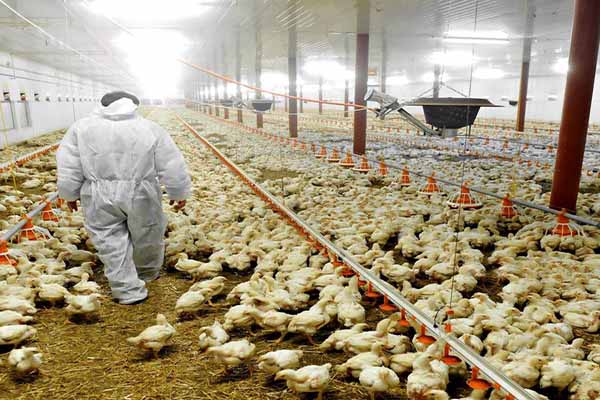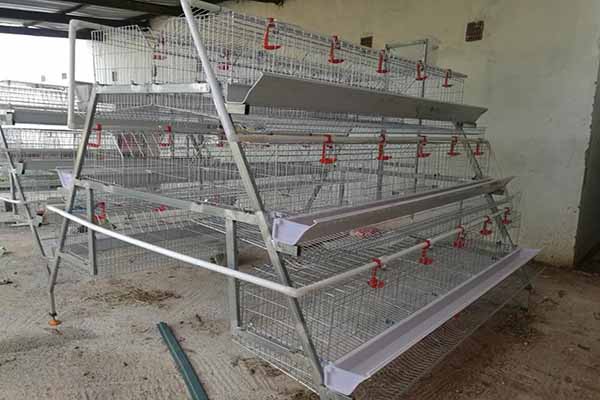How to Start a Chicken Farm in Haiti: A Comprehensive Guide
Time : 2025-07-01
Starting a chicken farm in Haiti can be a lucrative venture, especially considering the high demand for poultry products in the region. This guide will provide you with a comprehensive overview of the steps and considerations necessary to start a successful chicken farm in Haiti.
Understanding the Market
Before diving into the technical aspects of starting a chicken farm, it’s crucial to understand the market dynamics in Haiti. Conduct thorough market research to identify the following:
- Local demand for chicken products
- Preferred breeds and types of chicken
- Main buyers of chicken products (restaurants, supermarkets, local markets)
Legal and Regulatory Requirements
Compliance with legal and regulatory requirements is essential for the smooth operation of your chicken farm. Here are the key steps to consider:

- Business Registration: Register your business with the relevant authorities to obtain a business license.
- Health and Safety Certifications: Ensure that your farm complies with local health and safety standards, as this is crucial for obtaining certifications required to sell your products.
- Environmental Permits: Obtain the necessary permits to manage waste and ensure that your farm does not cause environmental pollution.
Choosing the Right Location
The location of your chicken farm is critical for its success. Consider the following factors when selecting a site:

- Accessibility to transportation routes for easy distribution of your products
- Availability of clean water sources for drinking and washing purposes
- Proximity to suppliers of feed and other inputs
- Adequate space for expansion
Designing Your Chicken House
The design of your chicken house is crucial for the health and productivity of your chickens. Here are some key considerations:
- Temperature Control: Ensure the house can maintain a consistent temperature, as chickens are sensitive to extreme temperatures.
- Airflow: Proper ventilation is essential to prevent disease and maintain air quality.
- Lighting: chickens require a consistent light cycle for proper development.
- Space: Provide enough space for each chicken to move around comfortably.
Choosing the Right Breed
Selecting the right breed of chicken is crucial for your farm’s success. Consider the following factors:
- Productivity: Choose breeds that are known for high egg production or fast growth rate, depending on your business focus.
- Disease Resistance: Opt for breeds that are resistant to common poultry diseases in your area.
- Feeding Requirements: Consider the feed efficiency of different breeds and choose one that aligns with your budget and resources.
Setting Up the Farm Infrastructure
Here’s what you need to set up your chicken farm infrastructure:
- Brooders: For chicks, you’ll need brooders to keep them warm until they’re fully feathered.
- Nesting Boxes: Provide nesting boxes for hens to lay eggs in a clean, comfortable environment.
- Feeding Systems: Install automated feeding systems for efficiency and accuracy in feeding your chickens.
- Watering Systems: Set up waterers that provide a constant supply of clean water.
- Manure Management: Invest in a manure management system to ensure proper handling and recycling of waste.
Feeding and Watering Your Chickens
Proper nutrition and hydration are essential for the health and productivity of your chickens:
- Quality Feed: Purchase high-quality feed that meets the nutritional requirements of your chickens.
- Regular Water Supply: Ensure a constant supply of clean water, as chickens require water at all times.
- Supplements: Consider adding supplements to your chickens’ diet to support their health and productivity.
Health Management
Preventing diseases is a crucial part of managing a chicken farm:
- Regular Vaccinations: Administer vaccinations to protect your chickens from common diseases.
- Sanitation: Maintain a clean environment to prevent the spread of diseases.
- Monitoring: Regularly monitor your chickens for signs of illness and take immediate action if needed.
Marketing and Sales
Develop a marketing strategy to reach your target market:
- Direct Sales: Sell directly to customers, such as restaurants, supermarkets, and local markets.
- Wholesale: Establish relationships with wholesalers to distribute your products to a wider market.
- Online Sales: Utilize online platforms to reach a broader audience and expand your market reach.
Costs and Budgeting
Estimate your startup costs and operational expenses to ensure your farm’s financial sustainability:
- Startup Costs: Include costs for land, buildings, equipment, breeding stock, and initial feed and water supplies.
- Operational Expenses: Consider ongoing costs such as feed, water, labor, utilities, and healthcare.
- Financial Planning: Develop a financial plan to cover the initial startup costs and ensure a steady cash flow for operations.
Conclusion
Starting a chicken farm in Haiti requires thorough planning  and a strong understanding of the market and technical aspects of poultry farming. By following this comprehensive guide and investing in quality equipment and management practices, you can lay the foundation for a successful chicken farm in Haiti.
and a strong understanding of the market and technical aspects of poultry farming. By following this comprehensive guide and investing in quality equipment and management practices, you can lay the foundation for a successful chicken farm in Haiti.











